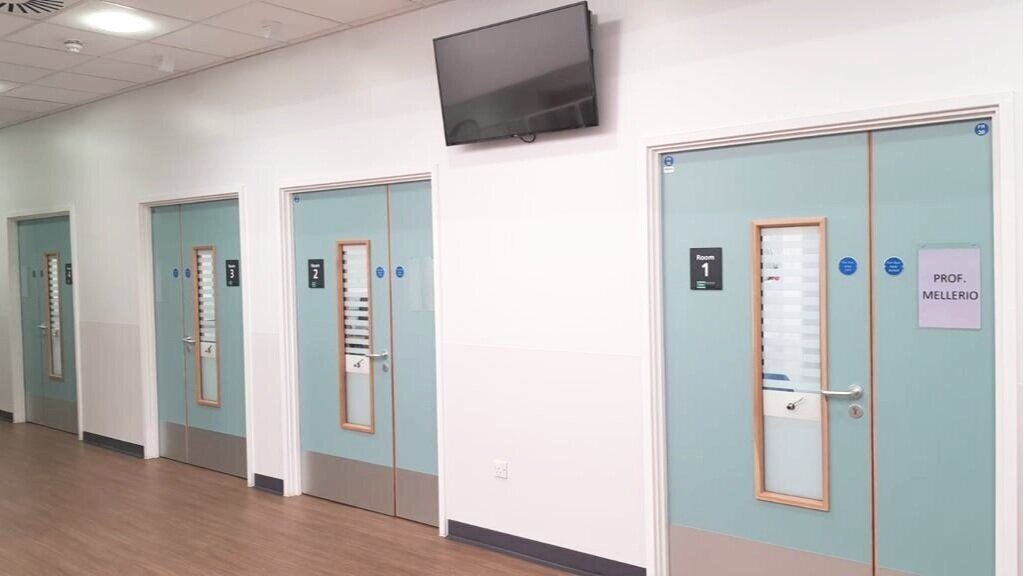About the clinicS
The Klinefelter Syndrome Multi-Specialty free NHS clinics are one of the first in the country to address the needs of patients diagnosed with Klinefelter (XXY) Syndrome. Klinefelter Syndrome affects 1:660 men and is thought to be one of the commonest congenital chromosomal disorders.
We run three types of free clinics:
One for adults (The Adult Klinefelter Syndrome Clinic)
One for children aged 0-12 (The Paediatric Klinefelter Syndrome)
One for young people aged 13-20 (The Klinefelter Syndrome for Young People)
Each clinic runs four times a year except the paediatric clinic which currently runs once a year, with plans to increase its frequency soon
What does the visit involve?
This is a one-stop clinic that covers all important aspects of the disease, with specialists in genetics, endocrinology, urology, reproductive medicine, psychosexual medicine and radiology all seeing and counselling patients through the various aspects of the condition.
For the young persons clinic, our expert team includes paediatric specialists in the same fields as the adult team, along with dedicated adolescent psychology input encompassing clinical and educational psychology as well as in some cases, neurodisability. A nurse counsellor is present to address any other personal concerns a patient may have. An individualised management plan is then created for each patient based on his priorities and this is given to both patient and GP/referring clinician.
Having a one-stop clinic visit reduces the number of visits a patient may have to make and also effectively ensures that all the key issues in the disease can be covered an address by a dedicated team in a specialist setting. In addition, a member of the Klinefelter Syndrome Association (see link below) may be present who may be able to give a personal view on living with Klinefelter Syndrome.
As patients will be seeing a few specialties and will be having a few time-dependent tests on the same day, it is important to arrive promptly in the morning by 8:45am and allow at about 2 to 2.5 hours in the hospital to allow all the tests and consults to be completed.
Our young persons clinic will also provide access to the adult clinic once patients are over 21, allowing for continuity of specialist care and attention for our our patient and their parents/carers.
Raj Baksi’s experience at the Klinefelter Syndrome Clinic in London.
Who can attend/receive the service?
Adult clinic:
Any patient over 21 with newly diagnosed with Klinefelter Syndrome or patients with known Klinefelter Syndrome who have unaddressed fertility/endocrine/genetic counselling concerns can be referred.
Paediatric and Young Person’s clinic:
The age range for referral is 0-12 for the paediatric clinic and 13-20 for the young person’s clinic.
All patients can be referred from their GP or from their secondary care clinicians. For referrers, please indicate if an interpreter is required, it is not possible to arrange this without advance notice. Partners & parents of patients with Klinefelter Syndrome are also welcome to attend with the patient. Please refer to the Contact & Referral page for details about the referral process and to access the referral forms.
FAQs
-
You can find the contact details of the Clinic on the Contacts and Referral page.
-
PLEASE NOTE DUE TO DEMAND THE CLINIC HAS RELOCATED FROM GUYS HOSPITAL TO ST THOMAS’ HOSPITAL
The clinics are held at the Rare Diseases Centre in the 1st Floor of South Wing, St Thomas’ Hospital. It is clearly signposted and there is a map in our ‘Contact & Referral’ page here. All patients should arrive by 8:45 AM as there will be special time-sensitive tests organised. It is designed as a one-stop clinic where all tests required to plan the further management of Klinefelter Syndrome will be done so only one attendance at the clinic is required.
A personalised management plan is then discussed at the end of the clinic amongst the specialists. The patient and referring clinician will receive this detailed plan in a letter.
Patient transport available for those patients who are eligible for this.
-
No, the clinic does not cost anything.
-
If available, please bring along all previous clinical letters about the condition including blood tests, semen analysis results (adult patients) and genetics results.
Young patients with up-to-date written assessments (educational, cognitive, psychological) should bring copies of this for the team to review.
-
Patients may have an ultrasound (scan) of the scrotum so please wear comfortable clothing. Blood tests may also be done (in the morning before 10 a.m.).
For the Adult Klinefelter Clinic, a semen sample may also be required so abstinence for at least 48 hours is advised. Partners of patients with Klinefelter Syndrome are also welcome to attend with the patient, especially if fertility is a concern. Parents & carers are of course welcome to attend the Young Persons Clinic.
Useful sources of information
The Klinefelter Syndrome Association - www.ksa-uk.net
The Klinefelter’s Syndrome Association (KSA) offers support and information to all affected by, or having an interest in, Klinefelter’s Syndrome (KS)
National KS database consent form. Click here for link National KS biobank consent form. Click here for link
Klinefelter Syndrome Clinic, St Thomas’ Hospital, London
Clinic Reception
Klinefelter Syndrome Clinic, St Thomas’ Hospital, London
Consultation Rooms



